Caroline King left Sweden 15 months ago with her husband and two sons. The family has had an incredibly exciting journey, visiting over 20 countries on several continents, while living as 'digital nomads', making a living via the internet while travelling.
The family has no plans to come back to Sweden at the moment, but has settled in Prague where they are practising home schooling or "unschooling" for their children. We asked Caroline a number of curious questions, and if you want to read more, you can follow the family's life and travels on their blog. The second journey.
Innehållsförteckning
Can you tell us a bit about yourself and your family?
I grew up in Stockholm and actually started my travel career when I was 17 years old and volunteered as a diver in a marine biology project in Belize one summer. I returned with a group of friends after high school and stayed in Central America for a year.
After that, I met my future husband from England while travelling to the Indian part of Kashmir. We got to know each other when the road was blocked because the military on both sides threw some grenades at each other. We bought a donkey and hiked in Ladakh and then fell in love with each other. I ignored the home ticket and went on a 4-month journey by train and bus through Asia back to Europe instead.
Both my husband and I are creative people who together run 3 online businesses. We have two children now, aged 4 and 6, who have been travelling almost since birth. It didn't feel completely unnatural for us to make the decision to sell the house and almost all our possessions in Sweden 15 months ago when the school holidays for our children were approaching.
Can you tell us about your trip?
We have visited 24 countries since leaving Sweden 15 months ago: Germany, Holland, Belgium, UK, Romania, United Arab Emirates, India, Maldives, Malaysia, Singapore, Thailand, Laos, Indonesia, Spain, Colombia, USA, France, Italy, Egypt, Palestine, Israel, Vatican City, Luxembourg, Czech Republic and Poland.
The way we travel and the choice of countries is mixed. Often we travel because of the company. Last autumn we were in Colombia because we were supervising the production of a large order of hammocks there. Although I'm a bit nervous about flying sometimes, we usually end up flying because it's cheaper, easier and faster. When the opportunity arises, we prefer to travel by train as it is both exciting with the view and the whole family likes to travel by train. The last train journey was a little over a week ago from Prague to northern Poland.
What is the best thing about travelling the way you do?
The absolute best thing is the freedom to be able to go wherever you want and to be able to organise your children's education in a way that we need for our family, which is not possible in Sweden because there is compulsory schooling. We really can't think of a better way to educate our children than to let them experience the real thing rather than read about it in books in a classroom.
In recent months, we've covered ancient Egypt and the Roman Empire, which for us means climbing the pyramids, seeing the amazing collection of mummies, sarcophagi, statues and more at the Egyptian Museum in Cairo, wandering the tunnels of the underground city in Naples and marvelling at the preserved art and plaster casts in Pompeii.
It is different how we decide where to go and what to experience but we definitely try to get a balance between work, education and the wishes of the children and the adults. We have climbed 3 active volcanoes quite recently. It is the children entirely who suggested doing it because they are fascinated by volcanoes.
Usually we all want to do the same things, so we've airboated among alligators in Florida, canoed a wild river in Laos, and lounged in the pool among the rice fields of Bali. But the main idea of travelling for us is discovery and learning how the world works and that there are so many different ways to live and do things.
Can you tell us about any unexpected challenges during the trip?
We didn't expect the internet connection to be so bad in the areas we visited in so many countries. It has been terribly frustrating when you need to do your job but can't because the wind is blowing the wrong way (!) or you happen to visit an amazing place where there is no internet at all.
Then you simply have to put your work aside until you get to a place with good connectivity. Life has been so much easier when we had good connectivity. Now we have learnt to plan and find out about the connection first.
You call yourselves 'digital nomads' - what does that mean and how do you make a living while travelling?
We make a living through our online shops - we design and make hammocks, pashmina shawls and... carpets in different countries like Nepal, India and Colombia. It started with my husband selling pashmina shawls from a box under the bed in 2001 and has evolved into a company that employs about 40-50 people in manufacturing in Nepal, and provides jobs to 100s of people in India and Colombia.
We have a fairness and environmental approach that permeates the company, so we visit the factories often to make sure that the workers continue to be happy and that the factories continue to maintain high standards.
When we made the decision to leave Sweden to home-school our children, there was a major restructuring of the company. Now we had to look for people who could take care of the parts that kept us chained to the office, so we have found other companies that send out, as well as customer service and admin in different countries.
It may sound like there's nothing left to do for us, but the truth is that if you don't keep the company on top, someone else will be better, so you have to keep improving. It's a constant scramble for time to get the most important things done.
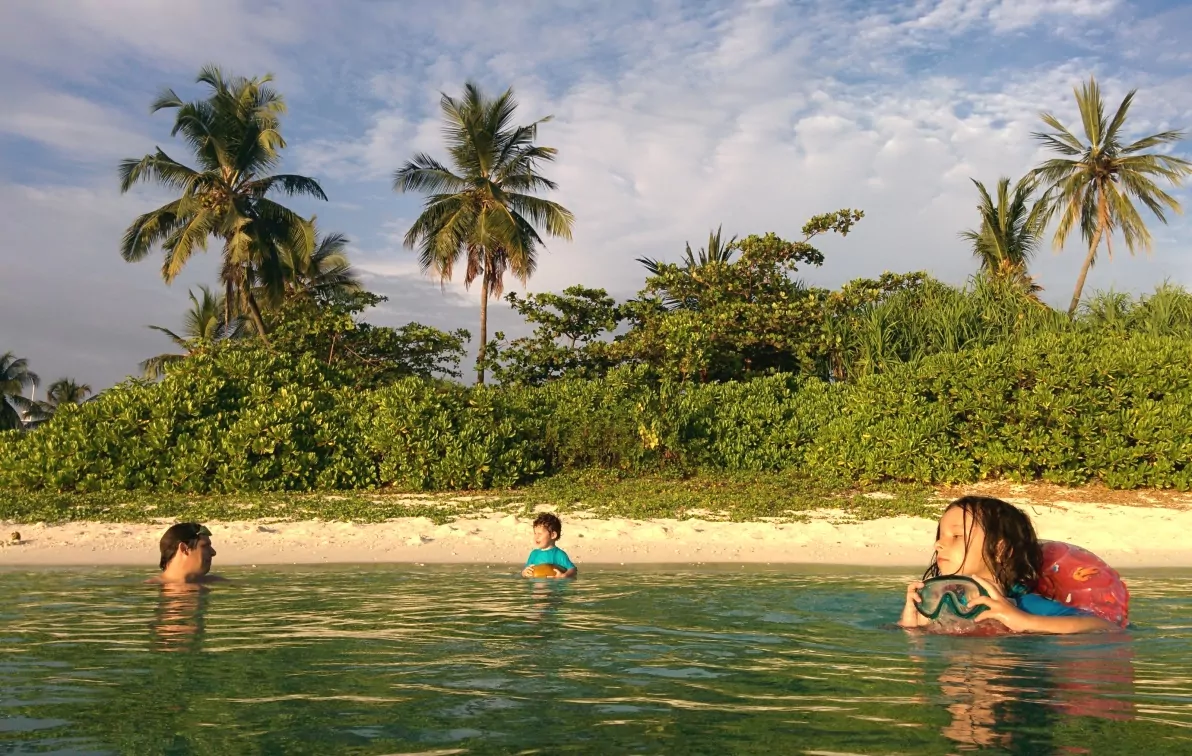
Your children do not attend a traditional school but you practice home schooling. How does this work?
We practise 'peaceful parenting' as best we can. This means following the non-aggression principle and do not use violence and coercion against children, which may not sound so strange, but if you go into details such as school and kindergarten, you can see that leaving a screaming child in kindergarten or forcing a child who does not want to go to school violates the non-aggression principle.
Following the non-aggression principle does not mean that you let the children do what they want completely, because then they can of course aggress against someone else, so we have rules and principles that everyone must follow and if someone breaks them, we discuss it.
There is a lot of arguing and negotiating, which we see as an investment for the future. The obligation to go to school and the fact that all children are different with different needs and the fact that we do not believe in the Swedish system itself means that we do not want our children in Swedish schools.
We practice something called unschooling, which basically means not following a school curriculum but rather tailoring the education to the child. Some families give their children completely free rein to do what they want. We believe that we have a responsibility to ensure that our children have the right tools for adulthood, so we have a framework for what we do.
We consider maths and literacy to be important so we have got the children interested in it and try to set aside about 2 hours a day for it. We taught our oldest child to read using the word picture method when he was 1. This means holding up large word cards and making it a kind of game. After a while, the baby learns to recognise the words and then to decipher what the letters are.
We follow the children's interests and realise that the older they are, the more diverse they become. The 5-year-old likes programming so we learn with Codeacademy and he often sits with his dad when he works with Magento. Our 4-year-old is more artistically inclined, very creative with Lego and likes cooking, so we set aside part of the day so that the children have their own time with their parents and have time for that.
Some people ask me how I can manage to teach my children things that I am not trained for. Then you have to ask yourself what is important to learn and whether the child is really interested, because if the child does not want to learn, there is no point.
And if the child wants to learn advanced physics/chemistry or something else that I'm not an expert in - Well, either I learn how to teach it or I hire a teacher for it or enrol them in a course. Now they are only 4 and 5 years old so we will take it when it becomes relevant and find the best solution then.
What are your future plans?
We will try to be resident in Prague for a year. The longest we have stayed in one place is 3 months so I think it will be a challenge for us! But Prague is strategically located with proximity to many central European cities and the Adriatic coast so once the feet start itching again, it is at least easy to go on shorter trips.
Finally, a question we ask everyone we interview: What is your dream destination?
Antarctica! It would be so incredibly cool to go with biologists and meet newly hatched emperor penguins! We had actually planned the trip, but just when I was about to start, I got pregnant, so we are postponing it for a few years until the youngest is 7.
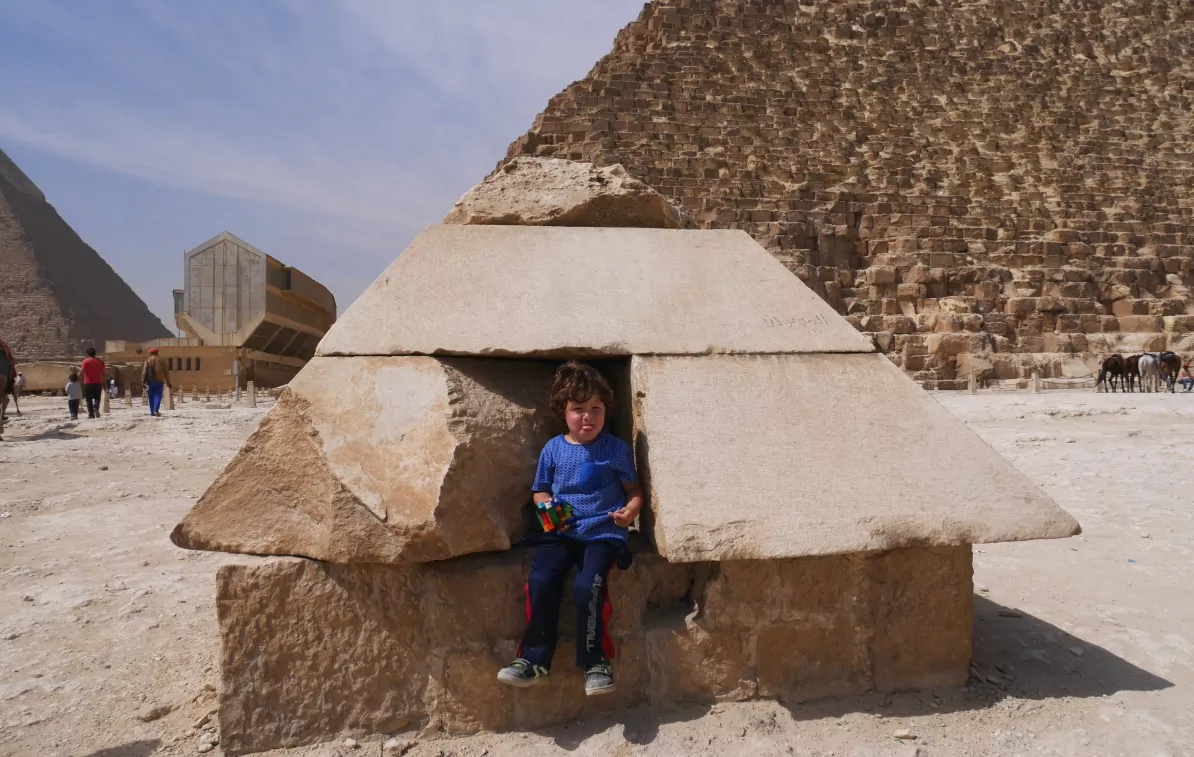
Thank you Caroline King for sharing your experiences and thoughts!

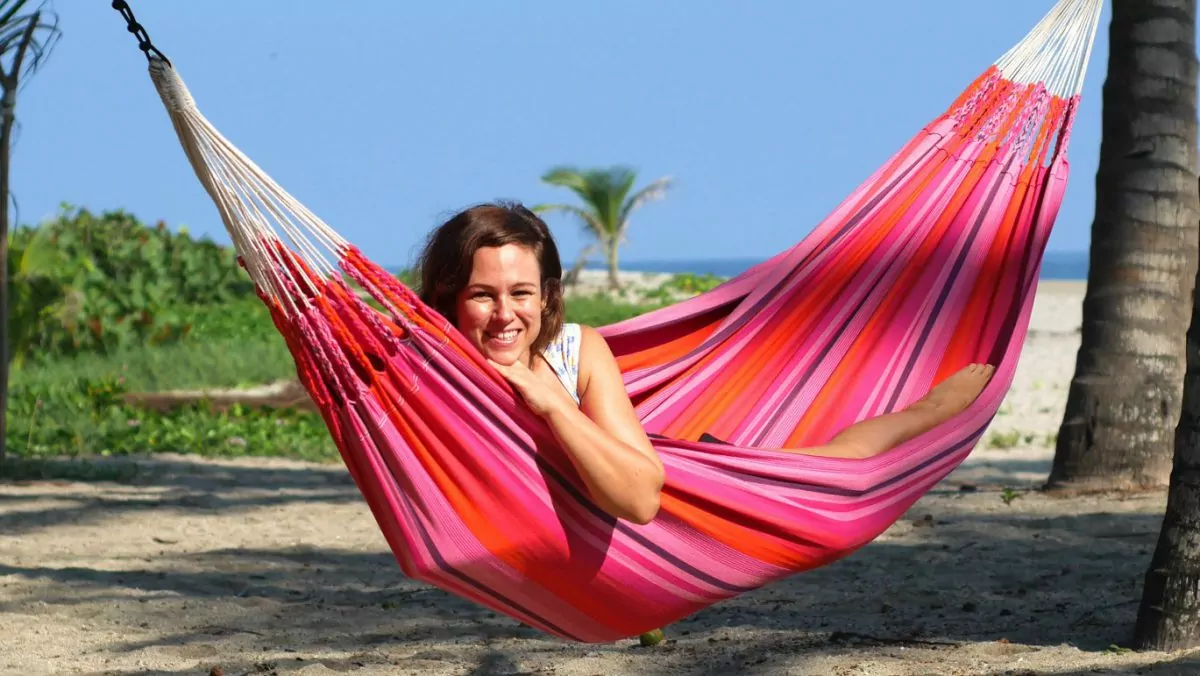
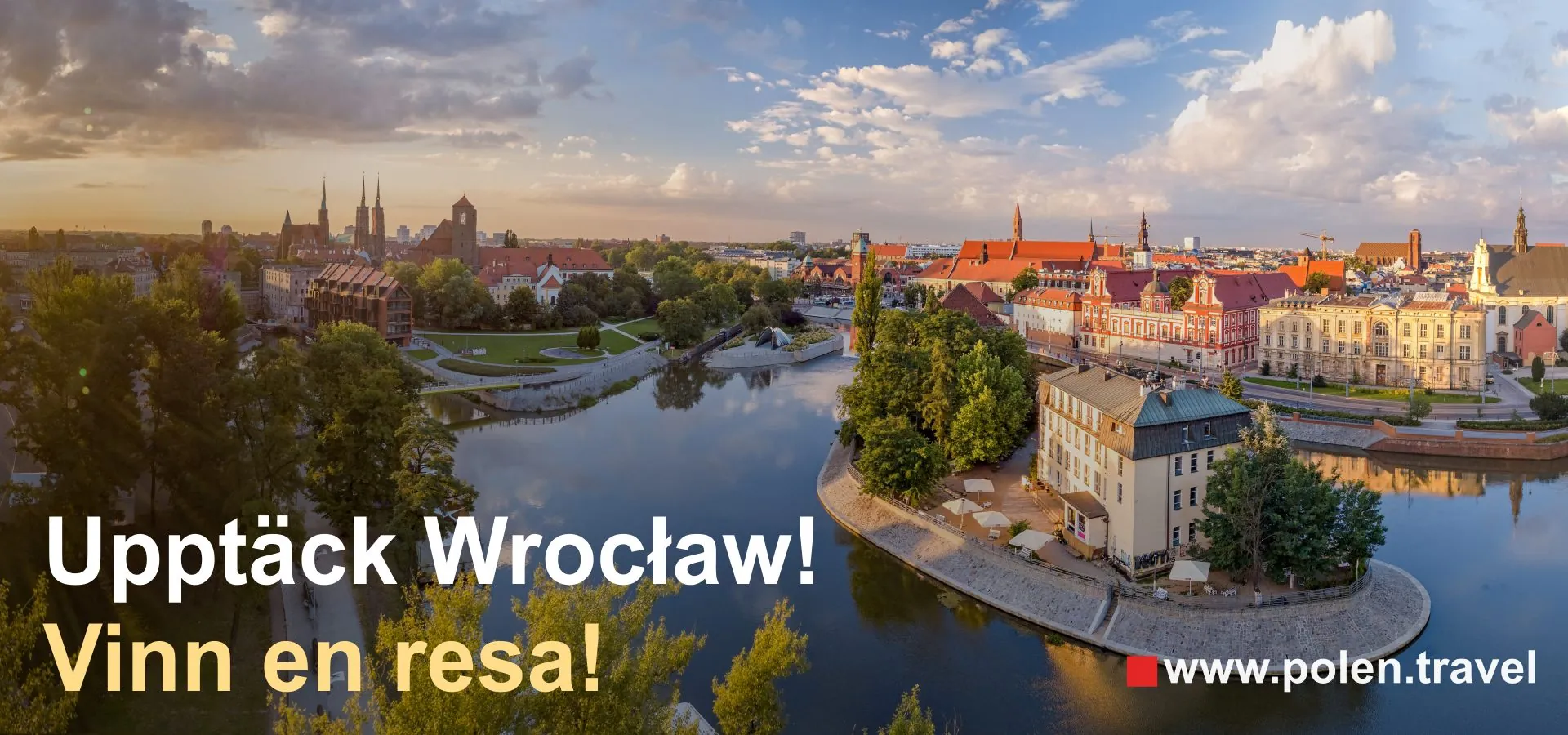






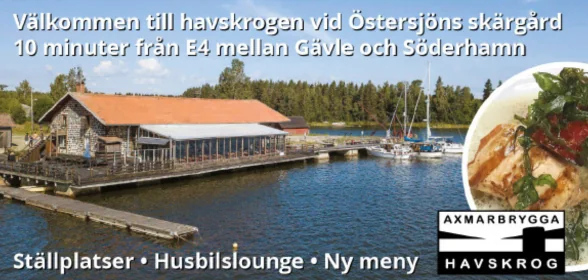
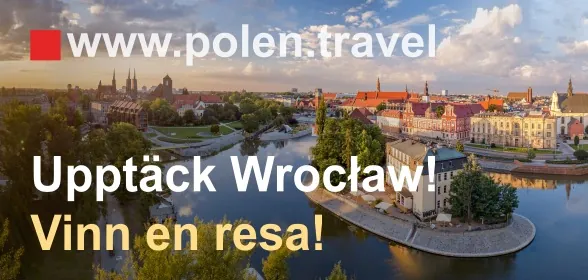
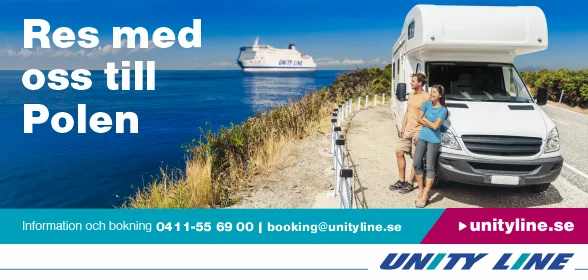
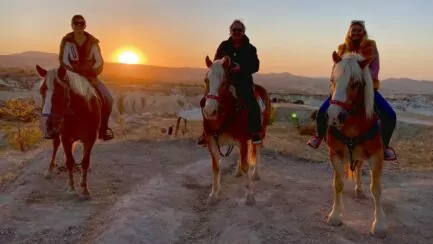
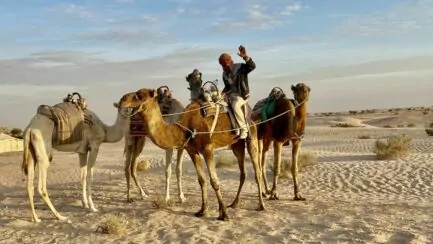
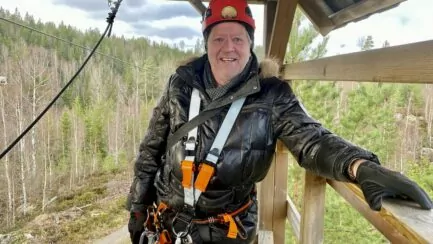
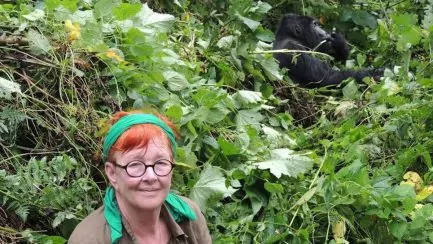
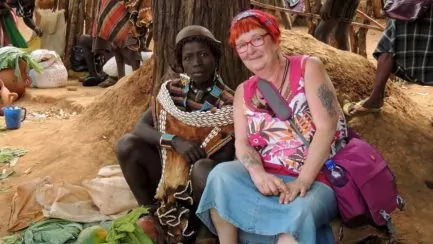




Åsa says:
Sounds nice to be free to travel, to be able to work where you are, but home schooling does not believe in, or rather I think it suits very few. In itself, I can agree that school does not suit everyone either,
30 April 2016 - 10:23
Ruth i Virginia says:
Sounds interesting - for a certain time - but being more or less the same.
less rootless would not suit me. Regarding the children, I wonder
how they can form relationships with other children and learn about
get together and share, etc. which is important in life. Even so
long are you, the parents, all their lives. Seems like they would
need playmates. What are your views on this?
30 April 2016 - 10:53
Elisabeth says:
As a teacher, I am somewhat provoked. Of course you can homeschool for a while, but school is also a social context, other role models and the opportunity to discover things you didn't realise you liked. Like physics, for example! Nomadic life sounds great, but it can be hard on a child if it lasts too long.
30 April 2016 - 10:56
Paul says:
I have to disagree about kids discovering things in school that they might not be interested in otherwise. I think it is the opposite. For example, if a child in Sweden is interested in studying economics ( I don't mean basic home budgeting), they will not find any lessons in school until they are 15 years old. As for the opportunity to become interested in physics, look how efficient these videos are compared to the incredible amount of time wasted in schools. TED-Ed (Physics): http://www.youtube.com/playlist?list=PLhDvDlD3b85zmvERO_rSSUj3FVWScEA_X . Also as the Swedish curriculum is about 90% centrally planned, many or most kids spend most of the time at school doing things they are not interested in and that they will therefore forget very quickly after the exam.
30 April 2016 - 11:29
Denandraresan.com says:
Hi Ruth in Virginia, regarding your comment "Regarding the children, I am wondering
how they can form relationships with other children and learn about
get together and share, etc. which is important in life. Even so
long are you, the parents, all their lives. Seems like they would
need playmates. What are your views on this?" I don't really understand the question. How do you think children should form relationships when the Swedish school system limits them to one age group and sorts them into classes without taking into account their interests and different levels of maturity? I would say that it is the opposite for children who are home-schooled. They make friends at all ages and according to their interests and make friends in many countries. It's a dilemma for us that they miss their best friends in England and that we see them for periods of time instead of being there, but they find it easy to make new friends and it's easy to keep in touch with the technology that exists today, through Skype and exchanging emails. Children who are used to meeting new people become outgoing and make contact. When we arrive in a new place, there is no shortage of playmates. There is also a network for travelling homeschooling families and this means that we parents should be forward too - we also want to get to know new people who share our interests 🙂 For me, I have very few friends from my school days but the long-lasting relationships come from common interests.
30 April 2016 - 11:32
Denandraresan.com says:
Hi Elisabeth,
Regarding your comment "As a teacher, I am somewhat provoked. Of course it is possible to homeschool for a period, but school is also a social context, other role models and the opportunity to discover things you had no idea you liked. Like physics, for example! Nomadic life sounds great, but it's hard on a child if it lasts too long."
I don't understand how you can feel provoked but I strongly suspect you know nothing about homeschooling so I can recommend some reading here on socialisation. https://www.hslda.org/docs/nche/000000/00000068.asp As the article says, the child is in the real world instead of being confined to a classroom. I do not know of any homeschooled child who has a lack of peers and interests. On the contrary, the child is given the opportunity to follow their interests. The homeschooling families we socialise with are busy with activities and play. I wrote a post about the social life of digital nomad families when we were in Bali - where they are plentiful. You can read it here http://www.denandraresan.com/2015/06/hur-man-hittar-det-sociala-sammanhanget.html
If you are interested in how children learn, you can delve a little deeper - I recommend reading "how children fail" by John Holt.
What we are forced to learn is quickly forgotten - the brain prioritises what we are interested in and can benefit from - so it's important to follow your children's interests. If our children want to teach us something that we don't know - such as advanced physics - we hire teachers for that, as I wrote in the blog post. The children are also involved in our company and learn a lot from it. If they want to run their own companies in a few years, I see no obstacles - in Sweden, the school and the age limit of 18 years would prevent it, which is strange because the goal of the school is to be able to get a job so it contradicts itself. We will be living in Prague for the next year. There is a large community of homeschooling families and a very wide range of activities and courses. But our children like us to travel - we went to the 3 active volcanoes in Italy a few months ago for example because they are just so interested in them, and we like to explore and follow their interests, so of course we will travel anyway even though we are getting a bit settled now.
30 April 2016 - 11:55
Mirjam says:
A teacher is invaluable at school. An ordinary parent rarely succeeds in teaching a class. But homeschooling your own children is an entirely different matter.
In terms of relationships, they are hardly alone in homeschooling, just because homeschooling is relatively uncommon in the Nordic countries, it is not the case all over the world. In many places there are homeschooling centres where you can socialise and make contacts with people of different ages, take self-selected courses or whatever you want.
I cannot understand why the image of school as superior for social interaction is so strong. For me it was just the opposite, I found it very difficult to develop socially in the 'Lord of the Flies' society.
Why shouldn't children be able to discover new things, like the fun of physics, as a homeschooled nomad? I think the conditions are perfect for that.
30 April 2016 - 12:02
Hanna says:
When travelling, you can also discover new things that you didn't know you liked, like physics. 🙂 When it comes to socialising, children are very quick to make good friends. They become acquainted within an hour, and best friends after two days. Three months is an eternity. I don't mean to say that there is no value in friendships that last several years, there certainly is, but not all friendships need to last that long. We are mostly settled, but occasionally go on longer trips. Then we go back to the same place and the children can pick up friendships from before. I also think it's good for them to miss. It's good to get to know all kinds of emotions in the safe environment that a family can be.
30 April 2016 - 12:07
Veiken says:
I think that home schooling can be excellent! It places enormous demands on the parents to take full responsibility in this area and to leave the "low-level mentality" in a bag far away. A child who is curious in his or her learning and who is stimulated to know more, places great demands on the adults.
You will gain experience and expertise that few can match! Good luck!
30 April 2016 - 13:05
Steve says:
No wonder there are many opinions in the comments as this family lives a life far removed from us "ordinary mortals". I would probably have to think long and hard to have a definitive opinion on this life. I am content to be fascinated by the choices the family has made. I believe that many times it can be beneficial to "think outside the box".
30 April 2016 - 13:24
Lena i Wales says:
Very exciting reading!
I like it when people dare to think and live outside the box.
As a former teacher, I think this sounds fantastic and open, not governed by conventions and how to think and feel. There is so much outside the so-called school subjects that can be well worth learning.
Thank you for sharing this with us!
30 April 2016 - 14:49
Resfredag says:
Really cool to read more about Caroline and their family. I follow their blog and without knowing that it was their company I have also bought one of the hammocks from them.
I find it incredibly interesting to read the comments about homeschooling - everyone is very passionate about the subject. I have completely re-evaluated my (negative) views on it after my sister started homeschooling her daughter when they moved to the US. Not everyone fits into the same mould, that's my firm opinion. The freedom to choose your own life is priceless, but with freedom comes responsibility.
30 April 2016 - 15:07
admin says:
Åsa, thanks for the comment and link! 🙂
Ruth in Virginia, thanks for the comment! I'll let Carolime herself respond here!
Elisabeth, thank you for your comment! Same here, I'll let Caroline herself answer!
Paul, thank you for replying! This discussion is very interesting to follow! As homeschooling is unusual in Sweden I am not surprised that there are many different opinions as well as questions.
Caroline, The second journey, how nice of you to respond! Home schooling is unusual in Sweden so I'm not surprised that there are different opinions and questions. I also had different thoughts and questions and think it is very interesting to follow the discussion! Many thanks again for being a guest with us and sharing your travels and experiences with homeschooling, very interesting!
Mirjam, thank you for your comments! It is very interesting to follow this discussion! I haven't thought much about homeschooling before.
Hanna, many people bring up the social aspect, and of course there are different sides of the coin!
Veiken, thank you for your comment! I will let Caroline answer herself in the first instance, but it is very interesting to follow the discussion!
Steve, I am also not surprised that there are many comments and thoughts! I (not having thought much about this before) am following the discussion with great interest!
Lena in Wales, glad you like the interview! We like to highlight people who dare to travel/live a little differently. We ourselves think it is interesting and provides an opportunity for reflection!
Travel Friday, haha how fun that you bought a hammock from them! Yes, it's always interesting to challenge your perceptions. I don't know how common homeschooling is in the US, but I have understood that it happens there.
30 April 2016 - 15:08
Ika i USA says:
Interesting reading! What an adventure, sounds wonderful to be able to do such a trip for a period of time. When I lived in Sweden, I didn't know much about homeschooling (probably because it's so unusual), and for that reason I thought it was negative. After living in the US for a few years, I have changed my mind. It is much more common here, and I think it suits some families very well as long as you take the "job" seriously and follow some kind of plan.
30 April 2016 - 15:31
Denandraresan.com says:
Several people wondered how common homeschooling is in the United States. It is the fastest growing form of education there, and now almost 2 million children are homeschooling. Many do it for religious reasons unfortunately (don't want to teach evolution to their children...sigh) and many do it because the school system doesn't work for their children and some because they don't want the state to interfere in their lives. There are many reasons. Universities in the US tend to favour home-schooled children - for the reason that these children have a desire to learn and an enthusiasm for the subject that is hard to get in regular schools. Home-schooled children get to geek out on what they are interested in. Right now, the youngest son wants to open a restaurant and the oldest wants to build rockets, he wants to go to MIT. Now they are only 4 and 6 years old so we will see how it goes but if the interest remains we will move close to MIT when they get older. We visited a homeschooling co-operative near Harvard a few years ago. Most of the families who were there were teaching at Harvard or were experts in their field so they shared their knowledge at the co-operative. I absolutely believe that this form of education is the future of education and that people in Sweden simply don't know what it really is because they haven't heard enough about it. It is really sad that homeschooling is not allowed in Sweden. Those who want to invest in it are forced to leave the country and become educational refugees.
30 April 2016 - 17:36
Ulrika says:
Really fun that you have Caroline as a guest blogger! For us, it is also completely excluded to have children in Sweden due to compulsory schooling and other coercion! You do a great job Caroline and Paul and you are very inspiring 🙂 .
30 April 2016 - 17:36
BP says:
I think the family has chosen a life that is fantastic. Imagine daring to "challenge" the limits of what we "normal Svenssons" cannot even imagine in our wildest imagination.
Unschooling - well, considering the fact that today's pupils in Swedish schools can neither spell nor count, I am absolutely convinced that children receive an equally good education from an involved parent.
In addition, children gain life experience and are likely to learn more languages.
30 April 2016 - 18:03
Kors och Tvärs says:
As usual - exciting and interesting to read
en: The upper part of the rear trunk on Adrian is a slideout so the bed was big inside. Folded in, the car was no longer than 5.99 m. Fun with new thinking and something that not "everyone" has:) http://se.adria-mobil.com/husbilar/compact+serien/compact+plus/
30 April 2016 - 18:16
Jo says:
How wonderful to be able to travel and teach at the same time. What knowledge and experience your children will have that they can't get in a classroom?
I live in the US and have homeschooled my children throughout primary school. Now in the last year my youngest has chosen to go to an American high school. Not only did he make friends easily, but he also got top grades in all subjects, plus he got to start senior year maths instead of freshman year. Now, I'm not writing this to brag, but more to explain that parents can homeschool and children become social and able to socialise with their peers after many years of being homeschooled.
30 April 2016 - 18:27
Frans says:
As I said, the Swedish school is not voluntary (except at a higher level) and I would not want my future children to go there as it is now. The results there speak for themselves, children who are not at the same level, multiculture etc. Uneducated children etc. No thanks.
I absolutely understand that you do not want your children in this deplorable level of indoctrination and where most teachers are also PC-influenced for lack of backbone.
30 April 2016 - 19:51
Denandraresan.com says:
Criss-cross - I'm curious what motorhomes have to do with this article?
30 April 2016 - 22:20
Ditte says:
Thank you for a rewarding and interesting read! I think it is great that you do not see obstacles in travelling, whether with or without children, but see solutions and opportunities.
And if you are not registered in Sweden, there is no compulsory schooling.
What happens later in life when the young children become teenagers is another matter. But in Sweden, if you choose to live here later, perhaps when higher education is approaching, (free of charge), you can request a special examination in the upper secondary school and thus obtain grades and access to them.
Maybe the same applies abroad, but I don't know. And in this case it is a long way off.
30 April 2016 - 23:00
Alexandra says:
I think it's good that we have the opportunity to live our lives exactly the way we want to! I think you have to assume that all parents only want the best for their children and act accordingly. We should respect and be humble about each other's choices, in both directions! I would never be able to home school my daughter even though I work in the school world, but for some people it's probably perfect. But as I said, I think it's important to be humble on both sides!
30 April 2016 - 23:04
admin says:
Ika in the US, thank you for your reflection! It's really interesting to hear how differently this is viewed in different countries!
Ulrika, we are very happy that Caroline wanted to be a guest and it is super interesting to follow this discussion!
BP, isn't it interesting to learn about how other people live and think, and at the same time challenge your own world view a bit? 😉
Across the board, thanks for the explanation of the campervan, nice to see a new approach! I'll look at the link tomorrow when I'm at the computer.
Well, thank you for your comment! Interesting to hear about your experiences!
Caroline, The second trip, the comment about the motorhome above was for us and had nothing to do with this... 😉 I would also like to draw your attention to the fact that some comments above have been approved only after a few hours (so you may not have seen them when you last looked in) because I was on a flight and did not have internet (if you have not commented before on the blog, I must first approve the comment before it is published).
Ditte, that's an interesting point about special testing. At least I didn't know anything about that.
Alexandra, it is often the case that different ways suit different people. This has been an exceptionally interesting discussion to follow, even though we don't have school-age children ourselves anymore.
01 May 2016 - 1:03
jenny says:
Most teachers should understand, and have experience, that going to school is not a guarantee of making friends. Quite the contrary. I am also a teacher and see daily bullying, ostracised children, bad words. In the homeschooling community I am part of as a parent, I never see this. The question of socialisation among unschooled/homeschooled children is often asked, but it is a myth that these children are not social and the question is often asked by people who do not know much about unschooling. If you read up on it, you will learn that it is the other way round?
01 May 2016 - 9:58
Pedagog says:
As the teacher I am and a mother of two children with a diagnosis, I get really frustrated by previous posts about the school being best for all students. Alternative schooling should be an obvious choice in Sweden! My son has never been understood in school by teachers who burned him out at the age of 11. He has top grades despite missing almost 6 years of school. When he finally got a teacher who understood him, he functions reasonably well but chooses not to socialise at school. He has others outside of school that he meets and has much more in common with. As a teacher, I try to find options for each individual and family. It's not easy at all and it takes a lot from me as a teacher to stay one step ahead, to listen to each child and come up with different solutions that still follow the curriculum. But just by showing respect and understanding, I gain a lot. Trust is essential for every child in school and we teachers must realise that we are not just there to teach. We are just as much there to help each individual child to develop according to their own special needs. I would love to home school my child but we have a large family and not the opportunity to move at the moment. ?
01 May 2016 - 11:11
admin says:
Jenny, thank you for your comment! Very interesting to hear about experiences from different places!
Educator, thank you so much for your comment and for sharing your experience! It has been very interesting to take part in this discussion and I have learnt a lot about homeschooling that I didn't know before!
01 May 2016 - 19:42
Maria says:
Truly inspiring! I myself am sitting with a little adrenaline in my body because I just got a little kick in the butt regarding my thoughts about going on a working holiday to Australia... Don't be surprised if I soon send off a visa application... 😉 If/when it happens, I think that some of my income will come via the blog as well 🙂 .
02 May 2016 - 11:15
admin says:
Maria, it sounds exciting with a working holiday in Australia! Do you have any specific plans on how the blog will contribute with income, or is it in the form of ads, sponsored posts etc. you mean?
02 May 2016 - 22:06
Franscisco says:
Happy reading!
I think you're absolutely right Caroline, I understand that you don't want your children in a Swedish (bad) school. It's crazy that school is compulsory and that you are forced to move just because you want the best for your children. But in Sweden, the tyranny of the majority works that way, it is not possible to have freedom of choice because everyone should have the result of EQUALLY bad education (even if the alleged intention was the opposite) Egalitarianism has become radical and equality now stands not for equal basic conditions but also attempts to achieve equal (bad) results (regardless of ambition).
Not a sign that Sweden is a good society if you ask me. But that's what happens when the tyranny of the majority is at work and they are also ignorant and uninformed...
Keep up the good work!
Offering some reading that will make you indoctrinated to dislike the thoughts, I'm afraid your brainwashing is hard... unfortunately. Never the less enjoy! =)
I myself belonged to this ignorant herd, so there is hope. 🙂
————- ————– ————–
Source: mises.se/2016/05/08/democracy-perverts-truth-telling-and-shame/
"But I shake my head at much of what they do. For example, that they go and vote. That they automatically defend the fact that they and their fellow human beings have the lion's share of their income stolen by the ruling class. That they feel grateful that the state imposes its version of "education" on their children. That they gloss over and apologise when the centrally planned healthcare system has claimed another victim."
!- further down -!
"At school and through the court poets of the third estate, we are taught how beautiful and wonderful the tyranny of the majority is. It is a constantly repeated mantra that we are taught starting at around the age of two. Try questioning the democratic system in the classroom as a ten-year-old and see what happens, for example. The vast majority of ten-year-olds are far too smart to do something like that, but I know a guy who decided to challenge the doctrine during his high school years. It turned out just as uncomfortable as you can probably guess.
If it were true that democracy is so beautiful, so wonderful and so superior, as school teachers and journalists keep reminding us, then why this absurd indoctrination effort? Are people too stupid to recognise the true, the right and the beautiful when they see it? I think not.
I believe that common sense is something that the vast majority of people are born with and are capable of. I am also convinced that the ruling class knows this ability. That is why they force parents to lock their children in state schools to be exposed to their curriculum for at least nine years of their most receptive and formative years."
09 May 2016 - 20:20
Lanclin says:
(Found this comment in my notes that I apparently wrote when I read this post but was on bad internet 🙂 )
Incredibly exciting topic! For me it is not about being for or against, we run a mixture of both "systems". Our one child goes to the incredibly disciplined German school here in Bavaria which he loves! Then we deliberately do a lot of home schooling in everyday life. By "at home" I also mean in museums, zoos and in the Alps, for example. It has kind of come naturally to spin on all the thousands of questions that the children ask. Since I am a teacher and have children with a (sometimes difficult) great drive to learn things when it is based on their everyday life and interests, like most children, there is nothing that feels strange at all, of course. Some things also become extra obvious to homeschool about because the German school, for example, does not take up Swedish geography, history and social studies 🙂 Nor how children are created, different measurement systems and how an engine works until high up in the grades. My children want to know these things and then it is just to explain, check books, visit museums, etc 😉.
15 May 2016 - 22:10
Denandraresan.com says:
Fransisco - thanks for sharing the link with everyone here. Have read it before though. "tyranny of the majority" - haha good term. will remember it for the next time I discuss democracy with someone 😀 compulsory schooling is just a symptom of what is really going on in Sweden.
Lanclin - good to hear that you are a committed parent. Unfortunately, they don't grow on trees. What do you think of the German school system compared to the Swedish one?
21 May 2016 - 13:53
Emilia says:
Everyone can do what they want. It's funny to see how parents are so provoked by those who disagree with their choices. Of course, the majority choose not to live such a nomadic life with children because the disadvantages outweigh the advantages for them. Of course, this is all about what suits the parents best. Otherwise, they would have given the school a chance before deciding. There are pros and cons to being part of a compulsory school system. For the majority it is good, for some it does not work well. Of course, I am referring to the children, not the parents. A responsible parent tries different solutions and evaluates them before making life-changing decisions for their children. Another aspect of this is that these children will not be able to participate in higher education in Sweden without first completing primary and secondary school. It is probably the same in most other countries with better education systems. These particular children may do well anyway....But most children are dependent on schooling to be able to get a job in the future.
Another aspect that is not taken into account is that travelling this way is completely unsustainable from a climate point of view. Do what you want, I say. But don't pretend that it's optimal and that there are no downsides, that's a lie. There are pros and cons to everything. Be honest with both sides of the coin.
22 June 2019 - 12:56
Magnus Aronson says:
Can home-schooled children obtain a higher education besides taking the university entrance exam? What is their average score on the university entrance exam?
17 August 2020 - 19:55